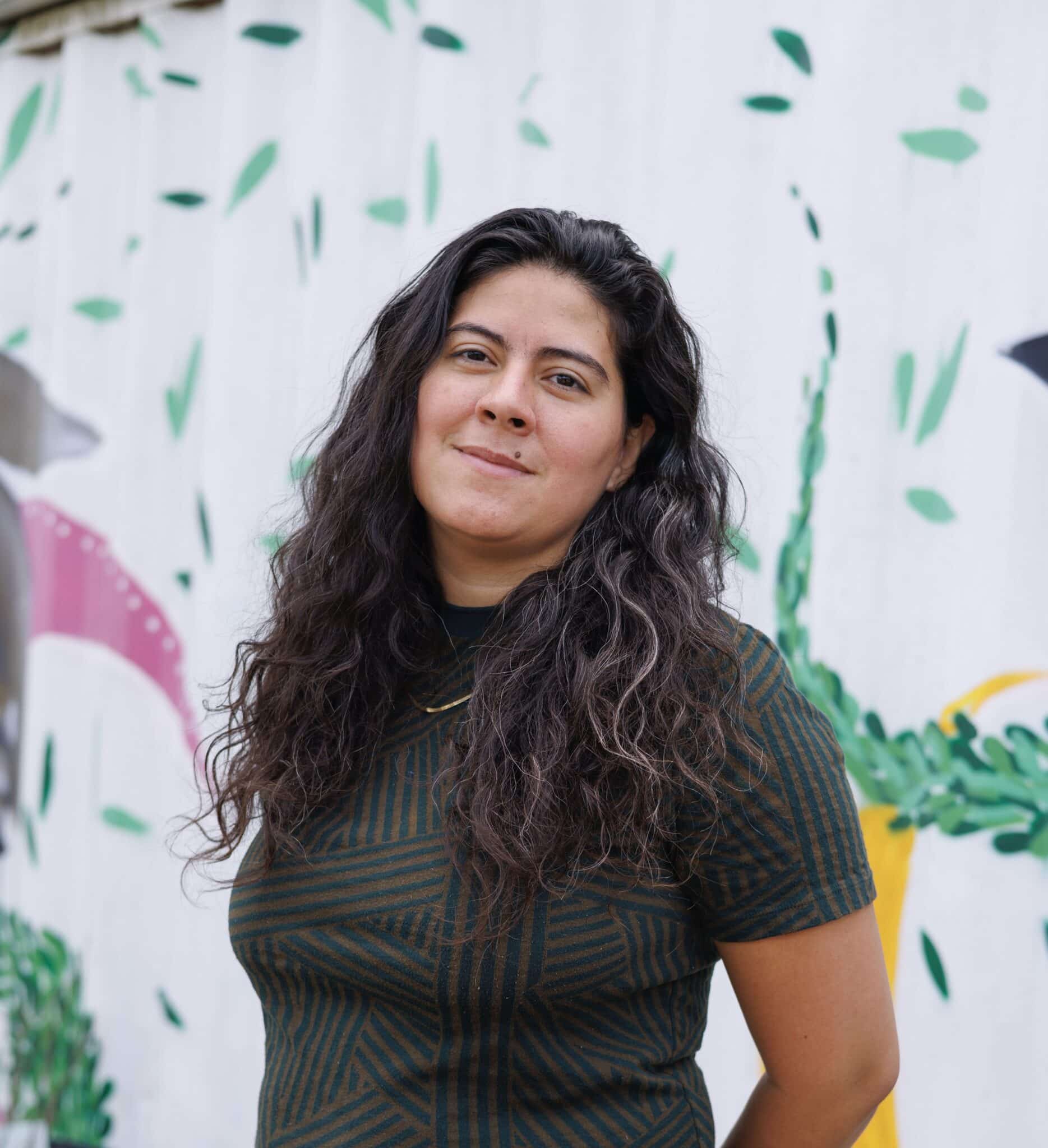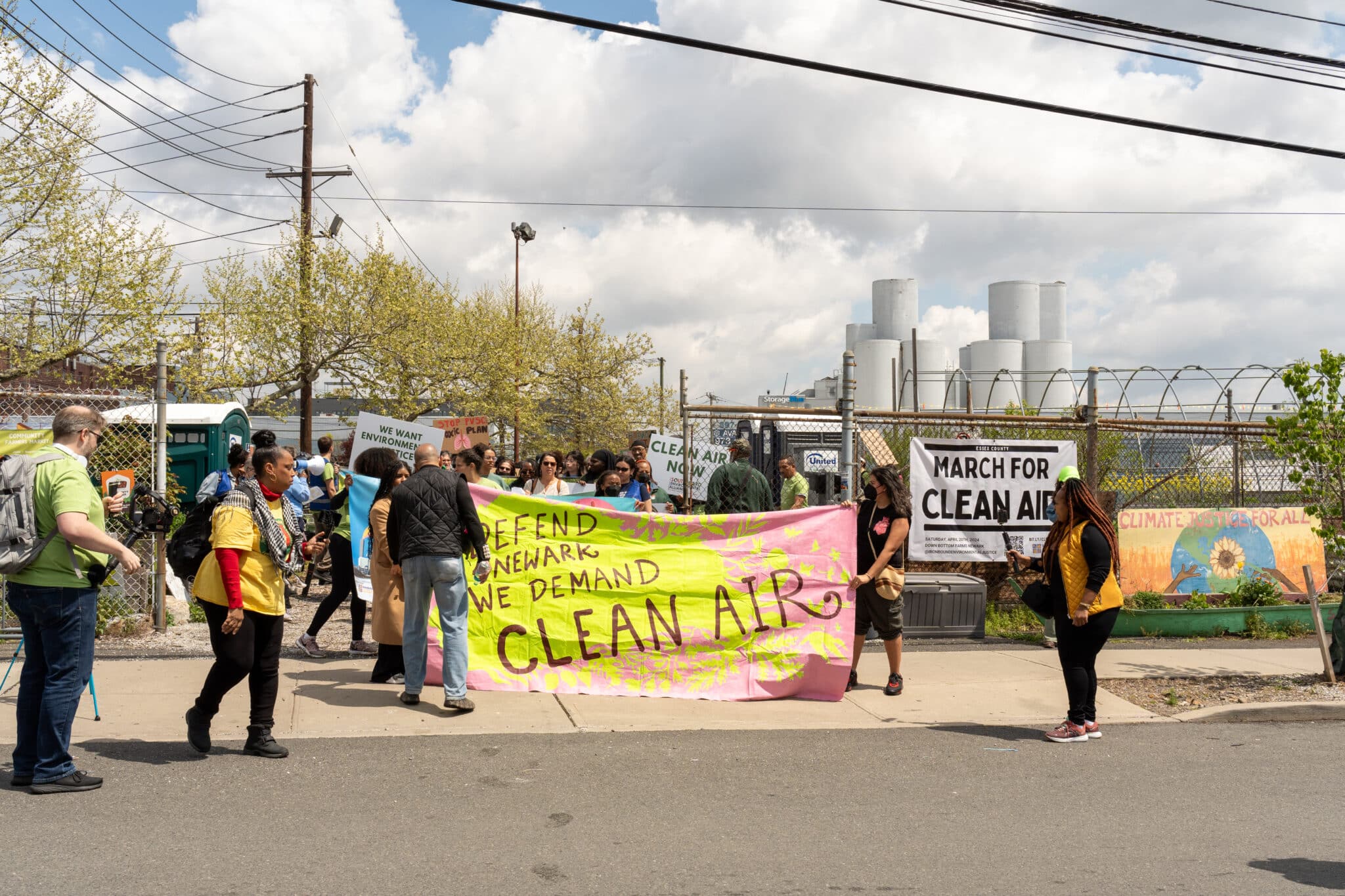Free to Breathe Clean Air
For Climate Week NYC 2025, we’re highlighting this story from our Sustainable Environments Program partners at Ironbound Community Corporation. Read the full story and more in our recent six-year impact report: Journey to Justice.
Free to Breathe Clean Air
Maria Lopez-Nunez was a young teenager when the $450 rent doubled overnight. Her family’s landlord in Bushwick, New York had died, and the new owner saw opportunity where her family saw home.
Waves of her Honduran family had immigrated and shared space in that apartment throughout her childhood, and in an instant, an era ended.
Maria remembers, “I started learning about how race determined everything about you. That really captivated me as being the biggest injustice, that your race could dictate not just the food you eat, not just where you live, or if you were harassed by the police or immigration, but also the very air that you’re breathing.”

“I believe in my people, I believe in my community, and I’ve seen us win. I know it’s possible we can win.”
For a decade, Maria worked at the Ironbound Community Corporation (ICC) in Newark, New Jersey. The Ironbound neighborhood is known for its great restaurants and hardworking community of people from around the world who came to make better lives for themselves and their families.
Despite its cultural riches, the four-square-mile neighborhood faces serious environmental challenges. Factories are next to homes and, as Maria explains, “None of the stuff in our neighborhood serves the city of Newark exclusively. We’re burning other people’s trash.”
The Ironbound is what urban planners euphemistically call “multiply burdened.” Three power plants. The state’s largest garbage incinerator. One of the country’s largest sewage treatment facilities, processing waste from 12 states. Forty percent of trash processed in the neighborhood comes from New York—a convenient arrangement for neighborhoods with more political capital than the Ironbound.
The area is surrounded by the longest Superfund site in the country, the Passaic River, where a chemical plant manufactured Agent Orange and dumped dioxin and other cancer-causing chemicals. There are open pits of sewage that, by law, should be covered.

“When it rains in the Ironbound, where there is less than five percent tree coverage, it floods,” Maria says. “That flood brings up sewage and toxic chemicals that kids wade through to go to school.”
“There is a chemical smell that, at first, resembles peppermint, until it doesn’t, and your eyes begin to fill with water,” Maria adds. “There is an acrid smell of dead animal flesh. There is a smell that resembles gasoline.”
“We think about all the poison in the food we eat and the water we drink. Everybody’s being impacted in some way or another, even if Black and Brown people are getting it worse.”
None of this happened by accident.
The Sacrifice Zone (directed by Julie Winokur) follows Ironbound Community Corporation’s Maria Lopez-Nuñez as she leads a group of environmental justice fighters determined to break the cycle of poor communities of color serving as dumping grounds for our consumer society.
For 55 years, the Ironbound Community Corporation has been building community and organizing people to end what Maria calls “environmental racism”—the systematic practice of dumping society’s waste in communities. The patterns are too consistent for coincidence: poor neighborhoods, immigrant communities, people of color bearing the toxic burden of everyone else’s consumption.
Still, Maria is as optimistic as ever.
“I believe in my people, I believe in my community, and I’ve seen us win. I know it’s possible we can win,” she says.
Ironbound Community Corporation and its allies at Clean Water Action and the New Jersey Environmental Justice Alliance spent decades building “people power”—organizing residents, documenting health impacts, and confronting officials at public meetings.
The breakthrough came in 2023, when Governor Murphy signed the nation’s first environmental justice law requiring state regulators to consider cumulative impacts before approving new polluting facilities in overburdened areas.
When Governor Murphy announced the final adoption of the Environmental Justice law in 2023, Maria noted, “The EJ Law has been dreamed up and fought for by frontline communities historically excluded from the environmental protections that allow the rest of our state to be a garden. We are depending on this law to put a stop to a legacy of siting toxic industries in low-wealth, communities of color.”
Melissa Miles, Executive Director for the New Jersey Environmental Justice Alliance, said, “This is a decades-long struggle that has finally borne fruit. By raising the bar in overburdened communities, everyone will benefit. This is a victory for us all.”
“This is a decades-long struggle that has finally borne fruit. By raising the bar in overburdened communities, everyone will benefit. This is a victory for us all.”
– Melissa Miles, executive director for the New Jersey Environmental Justice Alliance
Surdna’s Sustainable Environments program started funding Ironbound in 2018. Through her notable work and alliances, such as the New Jersey Environmental Justice Alliance and Climate Justice Alliance, Surdna built a relationship with Maria.
In 2021, Surdna’s Sustainable Environments team awarded ICC a three-year $450,000 general operating support grant, recognizing how ICC’s environmental justice work helps ensure environmental protections for low-income communities of color.
Thanu Yakupitiyage, program officer for Sustainable Environments at Surdna, says, “Ironbound Community Corporation is an exemplar of why philanthropy should invest in grassroots, frontline organizations working at the intersection of environmental and racial justice. Surdna was one of the first national funders to support ICC and six years later, Ironbound is part of an ecosystem of environmental justice groups that have shifted the narrative on environmental justice in New Jersey, making it a priority issue.”
Most recently, ICC stopped a $120 million sludge facility from being built, which would have burned more than 400 tons of waste a day. The project’s shutting down was a big win. But ICC’s fight to prevent polluting facilities from entering overburdened communities and end fossil fuel infrastructure presses on.
In recent years, ICC has organized hundreds of community members to speak out against the Passaic Valley Sewerage Commission (PVSC) and its proposal to build a fourth natural gas power plant in the Ironbound neighborhood. ICC continues strategizing to redirect funds from PVSC’s polluting fossil-fuel infrastructure toward a renewable energy microgrid. They exemplify that building power, supporting local campaigns, and investing in community-led environmental and climate justice solutions are beneficial for all.
“We’re all fighting for ourselves,” Maria notes, “for each other.”
Maria Lopez-Nunez recently left the Ironbound Community Corporation after ten years, but her work continues through the organization and the movement she helped build.

